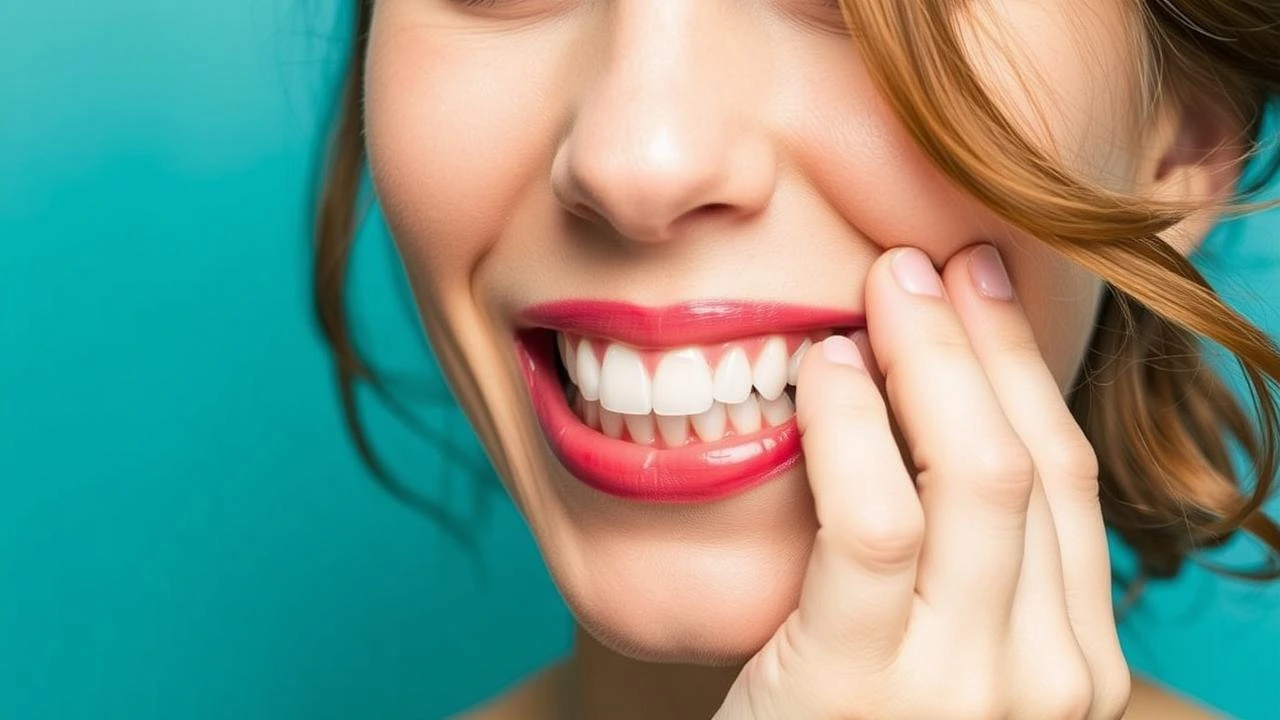We’ve all been there. A quick glance in the mirror, a fleeting thought about that lingering morning breath, or perhaps a slight twinge when sipping something cold. While we diligently brush and floss, there are often subtle, everyday habits that chúng ta do without a second thought, which are silently wreaking havoc on our pearly whites. These seemingly innocuous actions can lead to everything from enamel erosion and cavities to gum disease and tooth sensitivity.
As dental professionals, we often see patients who are surprised to learn that their daily routines might be the root cause of their dental woes. It’s not always about skipping your brushing or indulging in excessive sugary treats (though those are certainly culprits!). It’s often about the less obvious culprits that, over time, chip away at the health of our smiles.
So, let’s pull back the curtain on some of these common, yet often overlooked, dental saboteurs. Understanding these habits is the first step in taking control and ensuring your smile stays healthy and bright for years to come.
Habit 1: The “Water Bottle Warrior” – Sipping on Sugary Drinks All Day Long
This is a big one, and might surprise many. We often reach for our reusable water bottles, thinking we’re doing ourselves a favour by staying hydrated. However, what’s inside that bottle can be the problem. Many people habitually sip on sports drinks, fruit juices, sodas (even diet ones!), or sweetened teas throughout the day.
The issue here isn’t just the sugar content itself, although that’s a significant factor. It’s the frequency of exposure. Every time you take a sip of a sugary or acidic beverage, your teeth are plunged into an environment that can erode their protective enamel. Saliva is your mouth’s natural defence mechanism, working to neutralize acids and remineralize enamel. But when you’re constantly sipping, you don’t give your saliva a chance to do its job effectively. It’s like a constant acidic bath for your teeth.
Here’s a breakdown of why this is so damaging:
- Acid Attack: Sugary and acidic drinks lower the pH in your mouth, creating an acidic environment.
- Enamel Erosion: Repeated acid attacks wear away the hard outer layer of your teeth, known as enamel. Once enamel is gone, it doesn’t grow back.
- Increased Cavity Risk: Bacteria in your mouth feed on sugars, producing acids that further attack weakened enamel, leading to cavities.
- Tooth Sensitivity: As enamel thins, the underlying dentin becomes exposed, leading to increased sensitivity to hot, cold, and sweet foods.
What’s the solution?
- Water is your best friend: Stick to plain water as your primary beverage.
- Limit sugary drinks: If you do indulge, consume them with meals rather than sipping throughout the day.
- Rinse with water: After consuming acidic or sugary drinks, rinse your mouth with plain water.
- Use a straw: For acidic beverages, using a straw can help minimize direct contact with your teeth.
Habit 2: The “Clenching Champion” – Unconscious Teeth Grinding (Bruxism)
Do you wake up with a sore jaw? Or find yourself clenching your teeth when you’re stressed or concentrating? You might be a victim of bruxism, or teeth grinding and clenching. This is a surprisingly common habit, often performed unconsciously, especially during sleep.
While the occasional clench might not cause immediate damage, chronic bruxism can be incredibly destructive. The relentless pressure placed on your teeth and jaw can lead to a cascade of problems.
The consequences of grinding and clenching can include:
- Tooth Wear and Flattening: The constant friction can wear down the chewing surfaces of your teeth, making them appear flattened or shorter.
- Chipped or Cracked Teeth: The excessive force can lead to chips, cracks, or even fractures in your teeth, particularly the molars which bear the brunt of the pressure.
- Increased Tooth Sensitivity: As enamel wears away, the dentin is exposed, leading to sensitivity.
- Jaw Pain and TMJ Disorders: The muscles in your jaw can become overworked, leading to pain, clicking sounds, and even temporomandibular joint (TMJ) disorders.
- Headaches: Tension headaches are a common symptom of bruxism due to the strain on the jaw muscles.
How to combat this silent saboteur:
- Awareness is key: Try to be mindful of when you’re clenching your teeth during the day. Consciously relax your jaw.
- Stress management: If stress is a trigger, explore relaxation techniques like meditation, yoga, or deep breathing exercises.
- Dental consultation: If you suspect you grind your teeth, especially at night, speak to your dentist. They may recommend a custom-fitted night guard to protect your teeth from damage.
Habit 3: The “Snack Attack” – Mindless Munching on Sticky and Chewy Foods
We all enjoy a good snack, and there’s nothing inherently wrong with that. However, the types of snacks we choose and how we consume them can be detrimental to our oral health. Sticky and chewy foods are particularly notorious for clinging to teeth, providing a continuous food source for cavity-causing bacteria.
Think about candies like caramels, taffy, or dried fruit. These hold onto your teeth for extended periods, allowing sugars and acids to linger and attack enamel. Even seemingly healthier options like granola bars or some crackers can be just as sticky and pose a similar risk.
The dangers of frequent snacking on sticky foods:
- Prolonged Acid Exposure: Food particles get lodged between teeth and in crevices, where bacteria can ferment them for hours, producing damaging acids.
- Increased Plaque Buildup: Sticky foods contribute to plaque formation, a sticky film of bacteria that can lead to gum disease and cavities.
- Difficulty in Cleaning: Small, sticky food particles can be hard to remove with just brushing and flossing, requiring extra diligence.
Strategies for a healthier snacking routine:
- Opt for tooth-friendly snacks: Choose crunchy fruits and vegetables (like apples and carrots), plain yogurt, cheese, or nuts.
- Limit sticky treats: If you do consume sticky foods, do so with a meal to minimize the time they spend on your teeth.
- Rinse after snacking: Whenever possible, rinse your mouth with water after snacking, especially if you can’t brush.
Habit 4: The “Improper Polish” – Aggressive Brushing and Neglecting Gum Health
Brushing your teeth is fundamental to good oral hygiene, but how you brush makes a world of difference. Many people believe that brushing harder means cleaner teeth, but this couldn’t be further from the truth. Aggressive brushing can actually cause more harm than good.
The same goes for neglecting your gums. The health of your gums is just as crucial as the health of your teeth. If you’re not paying attention to them, you might be inadvertently contributing to gum disease.
The pitfalls of aggressive brushing and neglecting gums:
- Enamel Abrasion: Brushing too hard, especially with a medium or hard-bristled toothbrush, can wear away at your enamel.
- Gum Recession: Aggressive brushing can cause your gum tissue to pull away from your teeth, exposing the root surfaces. This can lead to sensitivity and increased risk of root decay.
- Tooth Sensitivity: Both enamel abrasion and gum recession can lead to increased tooth sensitivity.
- Gum Inflammation (Gingivitis): Not effectively cleaning along the gumline can lead to plaque buildup, causing inflammation, redness, and bleeding gums – the early signs of gingivitis.
- Periodontitis: If gingivitis is left untreated, it can progress to periodontitis, a more severe form of gum disease that can damage the bone supporting your teeth, eventually leading to tooth loss.
The right way to brush and care for your gums:
- Use a soft-bristled toothbrush: This is crucial for protecting your enamel and gums.
- Gentle, circular motions: Brush gently in small, circular motions, focusing on each tooth surface.
- Brush for two minutes, twice a day: This ensures adequate cleaning time.
- Don’t forget the gumline: Angle your brush slightly towards the gumline to gently clean away plaque.
- Floss daily: Flossing is essential for removing plaque and food particles from between teeth and under the gumline, areas your toothbrush can’t reach.
- Consider an electric toothbrush: Many electric toothbrushes have built-in pressure sensors that alert you if you’re brushing too hard.
A Smile’s Best Friend: Consistency and Awareness
It’s easy to get caught up in our daily routines without truly considering their impact on our oral health. These four habits – constant sipping of sugary/acidic drinks, unconscious teeth grinding, mindlessly munching on sticky foods, and aggressive brushing – are silent saboteurs that can chip away at your smile’s resilience.
As the renowned dentist and author, Dr. Charles Mayo, wisely stated:
“The greatest wealth is health.”
And a significant part of that overall health is a healthy mouth. By becoming more aware of these common habits and making conscious adjustments, you can significantly improve the long-term health and appearance of your teeth. Regular dental check-ups and cleanings are also vital. Your dentist can identify early signs of damage and provide personalized advice to keep your smile in top condition.
Let’s commit to making these small, everyday changes. Your smile will thank you for it!
Frequently Asked Questions (FAQs)
Q1: Are sugar-free or diet drinks truly safe for my teeth? While they don’t contain sugar, many diet and sugar-free drinks are still highly acidic. The acidity can still erode tooth enamel over time, so it’s best to limit your consumption of these as well and always rinse with water afterward.
Q2: I’ve heard that chewing gum is bad for my teeth. Is this true? Chewing gum itself isn’t inherently bad, but the type of gum matters. Sugar-free gum, especially when chewed after meals, can actually be beneficial as it stimulates saliva production, which helps neutralize acids and remineralize enamel. However, chewing gum with sugar can contribute to cavities.
Q3: How can I tell if I’m grinding my teeth at night? Common signs include waking up with a sore jaw or headaches, tooth sensitivity, chipped or worn teeth, and sometimes a partner might hear you grinding your teeth. If you suspect you have bruxism, consult your dentist.
Q4: Is it okay to brush my teeth immediately after drinking something acidic? It’s generally recommended to wait at least 30 minutes after consuming something acidic before brushing. Brushing immediately can actually spread the acid around and further erode the enamel when it’s in its softened state. Rinsing with water is a better initial step.
Q5: How often should I replace my toothbrush? You should replace your toothbrush every 3-4 months, or sooner if the bristles become frayed. A worn-out toothbrush is less effective at cleaning your teeth and can also be harsher on your gums.
Dentist lists 4 everyday habits that are destroying our teeth






